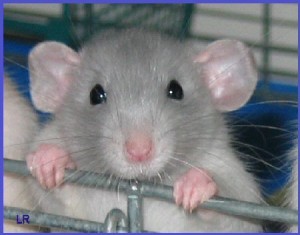 Although the word strikes fear into the hearts of many, a rat is not always a pest. Many people have come to love the furry little creature and have adopted them as pets. When cared for correctly, rats make intelligent, affectionate and responsive pets who can be easily trained. If you own a rat or you’re thinking about getting one, you’ll need to understand what is involved with owning one and how to care for it.
Although the word strikes fear into the hearts of many, a rat is not always a pest. Many people have come to love the furry little creature and have adopted them as pets. When cared for correctly, rats make intelligent, affectionate and responsive pets who can be easily trained. If you own a rat or you’re thinking about getting one, you’ll need to understand what is involved with owning one and how to care for it.
Buying a Pet Rat
The first thing to note is that a pet rat is not the same as rat you might see on the subway! It is not advisable to try to catch a wild rat and attempt to domesticate it. Those rats are often aggressive, carriers of pathogens and diseases that can harm humans, and are extremely difficult to catch besides.
If you want to keep a rat, you’ll need to buy it from a reputable breeder or pet shop. Breeders of rats take just as much care breeding baby rats (called ‘kittens’) as any breeder of pedigrees. They carefully select breeding pairs as rats are prone to certain ailments, and ensure that they are well-fed and disease-free. They also handle the rats from birth so you can be assured that they are well-socialised. Breeders can also give you advice on how to care for your pet rat and help you if you have problems after taking it home.
Pet shops are a cheaper option, but you’ll want to choose an extremely reputable one trained in caring for rats.
Caring for Your Pet Rat
If you buy from a breeder, your rat will be at least six weeks old – weaned and socialised and ready to leave the litter. Rats have a lifespan of approximately 2 years. A male rat, called a ‘buck, weighs around 500g and a female rat, called a ‘doe’, weighs around 300g. Rats are prolific breeders, capable of producing 2,000 kittens in a single year if allowed to breed unchecked (a doe will begin mating again as soon as her babies are born).
For this reason, it is extremely important to separate your does and bucks unless you intend to breed them, and you may wish to have the bucks castrated. This also assists in making the buck less aggressive as it keeps the level of male hormones in check.
Rats are notorious for eating anything, but you should take care to manage their diet because obese rats have a significantly shortened lifespan. You can buy nutritionally complete rat mix or feed your rat rabbit mix and occasionally give them table scraps like vegetable peels. The cage in which you keep your pet should have a water bottle with fresh water available at all times.
Rat-Proof Your Home
Rats love coming out of their cages to play, but as much as you love your rat, you don’t want it to wander through the house without supervision! Aside from the danger of losing it, there are many things that could suffer if a rat is allowed to gnaw unchecked. You’ll need to take care to rat-proof a room in which you intend to let your rat run around – secure valuables, remove electrical cords (or rat-proof them with tubing) and most importantly make sure there are no gaps or open windows – rats can squeeze through tiny spaces and a domestic rat may run into a world of trouble outside!
Kahmen Lai is a freelance writer who occasionally writes for http://www.preventivepestcontrol.com in her spare time. She also writes extensively on green and pet-friendly solutions for pest problems in the home.